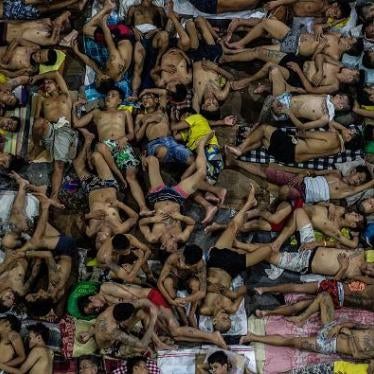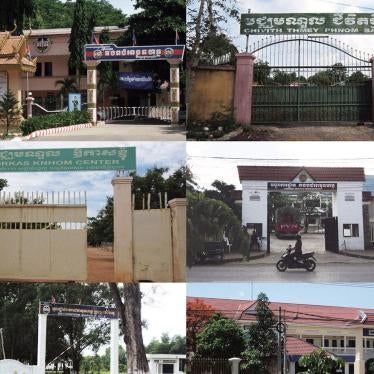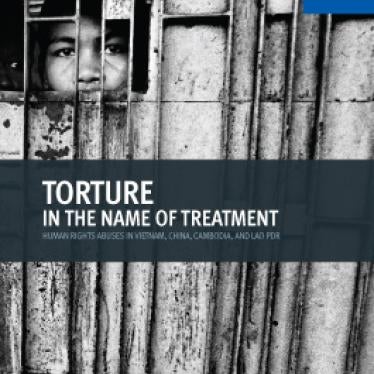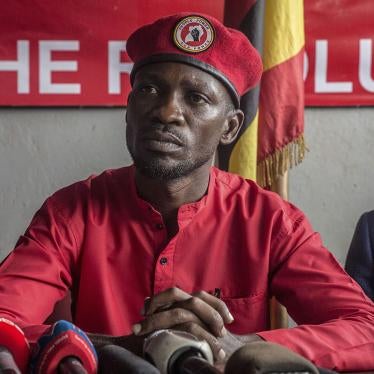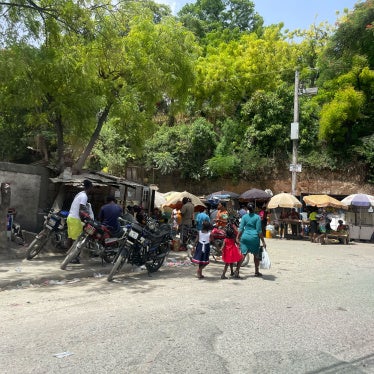China has made some strides in the fight against AIDS. But the government should be held to account for stifling the work and voices of Chinese AIDS activists and nongovernmental organizations. The man who may be China's most prominent defender of the rights of people living with HIV, Wan Yanhai, took refuge in the United States in April, after months of harassment by Chinese authorities. His organization, Aizhixing, has been repeatedly audited by government officials and is in imminent danger of being shut down. Other nongovernmental AIDS organizations have been similarly threatened, and people infected with HIV or at risk of infection in China continue to face discrimination and abuse.
So why then, in late June, did the chief of the Global Fund to Fight AIDS, Tuberculosis and Malaria - a $20-billion public/private fund that operates in 144 countries - thank the Chinese government for its efforts on AIDS prevention, treatment and care, and say nothing publicly about the rights of HIV-infected people?
The praise from Michel Kazatchkine, executive director of the Global Fund, was directed at the Chinese vice premier, Li Keqiang - the same person who, as governor of Henan province from 1998 to 2003, oversaw an intense government cover-up of an HIV epidemic, victimizing both patients and their advocates.
Kazatchkine is not the only international figure to uncritically praise the Chinese response to AIDS.
In 2005, Jim Yong Kim, then director of the World Health Organization's HIV Department, visited China and declared: "After it was discovered that people in China got infected via blood transmission in hospitals and through intravenous drug use, the government went to extraordinary lengths to stop transmission."
His statement rewrites history. The "extraordinary lengths" China pursued included harassing and putting under house arrest Dr. Gao Yaojie, the doctor who exposed the problem. Gao, 83, fled China in 2009. She has said since that she is afraid to return.
Another well-known AIDS activist, Hu Jia, is serving a 3 1/2-year sentence for "inciting subversion of state authority," an offense used to punish those who criticize the government or the Communist Party of China. His arrest was part of a wider crackdown on Chinese citizens before the 2008 Beijing Olympic Games.
The comments of Kazatchkine and the plight of Wan, Gao and Hu are emblematic of the HIV/AIDS response in China: On paper, the Chinese government has laws and policies that are protective of the rights of an estimated 700,000 people living with HIV in the country. In practice, these policies are frequently undermined by the actions of police and public security forces, who round up "undesirables" such as sex workers and drug users and intimidate and censor civil society organizations working to expand HIV outreach.
This tension was highlighted in report released by UNAIDS last year that found that two-thirds of HIV-infected people in China have not sought treatment because of fear, ignorance and discrimination. UNAIDS' director, Michel Sidibe, said then that China needed to "break the conspiracy of silence" surrounding HIV/AIDS.
But clearly, it is not just the Chinese government that needs to break the conspiracy of silence; it is also the international donor community. It would be wise to listen to what inmates at any of the approximately 700 compulsory drug detention centers in China have to say.
Human Rights Watch's research has found that the roughly 500,000 people at these centers are routinely beaten, forced to work for up to 18 hours a day without pay, have no access to drug dependency treatment and are denied even basic medical care. Under China's 2008 anti-drug law, drug users, even first-time users, are locked up for three to six years, without trial, in "treatment" centers that have a relapse rate of as high as 90%. Our research found that some detention center guards provided drugs to "patients"; and one guard admitted using the mandatory HIV test results to determine which female drug users to have sex with.
The Global Fund, as part of its more than $1 billion in HIV funding to the Chinese government, supports a variety of programs in these centers, including "provider-initiated" HIV testing and training of detention center staff members. The United States supports similar programs in China and Vietnam, without any, as one senior U.S. official admitted, "rules of engagement." United Nations agencies, such as UNICEF and UNODC, have also funded programs in detention centers in the region.
To his credit, Kazatchkine has acknowledged that torture occurs in these centers and has called for them to be closed. He has not, however, announced an end to the funding of programs in the centers, clinging to the false promise of the "ethical" delivery of services to detained drug users, something that may be a comfort to those in Geneva but in effect subsidizes and potentially legitimizes what are clearly unlawful centers.
For $1 billion, the Global Fund should be able to buy at least a small amount of accountability in addition to providing uncritical praise. They should use this month's International AIDS Conference in Vienna, which has a human rights theme, to speak out publicly about the harassment of Chinese AIDS activists and work with other donors to announce an end of funding for detention center programs. Funding efforts to keep people from being locked up, by expanding community-based drug dependency treatment, legal services and outreach to drug users - not typically understood as "health" interventions - would save more lives.
China has made some strides in the fight against AIDS. But the government should be held to account for stifling the work and voices of Chinese AIDS activists and nongovernmental organizations. The International AIDS Conference focuses this year on human rights because abuses fuel the HIV epidemic. Governments and donors must dedicate themselves to ensuring that support for human rights is central to their response to AIDS.
Joe Amon is the Director of the Health and Human Rights division at Human Rights Watch.
